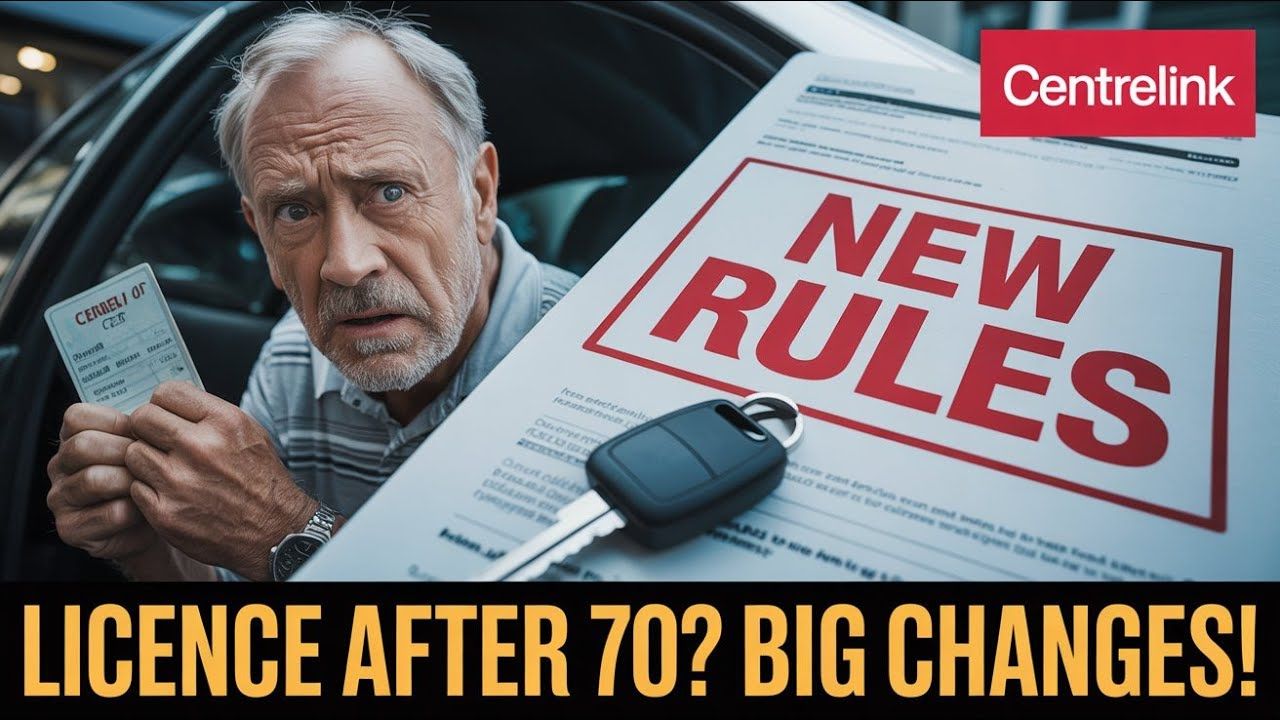For Australians turning 70 and beyond, renewing a driver’s licence is no longer a straightforward process. This year, new rules have been introduced that link mobility assessments to Centrelink records, raising fresh questions about how seniors will be treated when it comes to independence, safety, and access to vital services.
While the changes are framed as a safety measure, critics warn they could create unnecessary red tape and even risk leaving older Australians without the freedom they rely on.
Why the Government Has Changed the Rules
The government argues that older drivers face increased health risks, including vision decline, reduced reaction time, and chronic conditions that can impair driving. The new rules ensure that anyone over 70 must undergo periodic mobility and medical checks. Centrelink will now play a role in flagging seniors who receive certain health or disability benefits, making them subject to additional assessments before their licence can be renewed.
How Licence Renewal Works After 70
Under the new system, licence renewal for seniors involves more steps than before. Drivers must:
- Submit a medical fitness-to-drive certificate from their GP.
- In some cases, take an on-road driving assessment.
- Update Centrelink records if mobility-related payments or medical benefits are involved.
This process ensures that information between health professionals, Centrelink, and transport departments is consistent. However, it also means delays could occur if records are not up to date.
Who Is Most Affected?
The new rules particularly affect those receiving Centrelink payments linked to health and mobility. For example, pensioners on the Disability Support Pension (DSP) or those with Mobility Allowance may face additional scrutiny. Age Pensioners without mobility-related benefits may still need to complete medical checks, but will not always require the extra assessments.
Licence Renewal After 70 – What’s Changed
| Age Group | Previous Renewal Rules | New Renewal Rules (2025) |
|---|---|---|
| 70–74 | Medical check every few years depending on state | Mandatory GP certificate every renewal + Centrelink mobility record review |
| 75–79 | Annual medical check | Annual medical + possible on-road test if flagged by Centrelink |
| 80+ | Annual medical + on-road driving test in most states | Annual medical + compulsory on-road test, plus Centrelink health/mobility cross-check |
The Link with Centrelink Payments
For seniors receiving Age Pension alone, the process is simpler but still more rigorous than before. However, anyone with additional Centrelink benefits related to mobility, health, or disability may find that a flagged record automatically triggers an on-road driving test before a licence can be renewed.
This means that older Australians relying on their car to access medical care, visit family, or maintain independence may face stricter hurdles than in the past.
Concerns Raised by Seniors Groups
Advocacy groups warn that the changes may unfairly target seniors who are still safe and capable drivers. There are also fears that linking Centrelink records to licence renewals could create unnecessary delays if government systems fail to update promptly. For rural and regional seniors, losing a licence could be devastating, cutting them off from community life and essential services.
What Seniors Should Do Now
Older drivers are being advised to keep their Centrelink details current and to book medical checks well ahead of their licence renewal dates. This will help avoid delays and ensure there are no unexpected suspensions. While safety remains the government’s stated goal, the impact on independence for many Australians over 70 cannot be underestimated.




